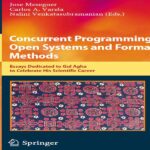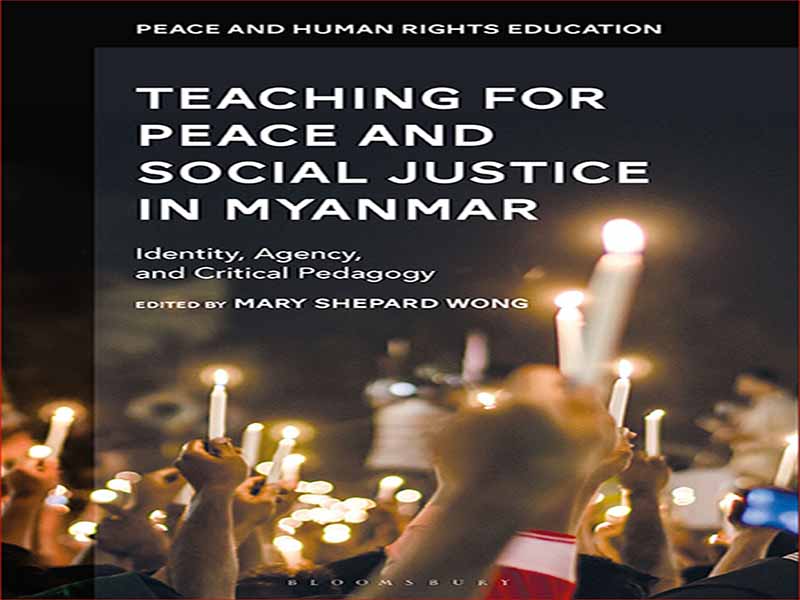- عنوان کتاب: TEACHING FOR PEACE AND SOCIAL JUSTICE IN MYANMAR
- نویسنده: Mary Shepard Wong
- حوزه: عدالت اجتماعی
- سال انتشار: 2022
- تعداد صفحه: 265
- زبان اصلی: انگلیسی
- نوع فایل: pdf
- حجم فایل: 3.36 مگابایت
در طی پنج دهه گذشته، هم آموزش صلح و هم آموزش حقوق بشر از حاشیه بیرون آمده اند تا به رشته های آکادمیک مشروع با مجموعه ای در حال رشد و غنی از بورسیه ها تبدیل شوند. ما شاهد بوده ایم که هر دو زمینه در طول زمان تحت تأثیر تفکر انتقادی فمینیستی، غیرنظامی سازی و مطالعات صلح، جنبش های عدالت اقلیمی، مشارکت داستعماری و پسااستعماری، و بومی گرایی قرار گرفته اند و مسائل مهم و تأملی برای جهت گیری های آینده این حوزه مطرح می شود. در حالی که هم ازدیاد کتابهای مرتبط با این زمینهها و هم افزایش تصاعدی در مجلات اختصاص یافته به موضوعات (مانند مجله بینالمللی آموزش حقوق بشر، بررسی آموزش حقوق بشر، مجله آموزش صلح، در فکتیس پکس، از جمله)، این مجموعه کتاب در مورد آموزش صلح و حقوق بشر اولین در نوع خود است. شامل دو حوزه مرتبط که با یکدیگر در گفتگو هستند – آموزش صلح و آموزش حقوق بشر – نیازی نیست که مشارکتهای این مجموعه هر دو زمینه را پوشش دهد، اما با هم درک ما را از نقش آنها در توسعه و تحول آموزشی ارتقا میدهد. این مجموعه ایدهها، مسائل، بحثها و پرسشهای محوری پیرامون صلح و آموزش حقوق بشر را با گردآوری دانشهای پیشرو در این زمینهها، هم به طور جداگانه و هم همزمان، از نظریهپردازان، محققان و متخصصان برجسته در این زمینه برجسته میکند. نوع کار در این مجموعه قوی است – از مفهومی، تاملی، تا تجربی – زیرا هدف ما ارائه مقطعی از تحقیقات علمی است که پویایی هر دو زمینه را در طول زمان به نمایش می گذارد. در نتیجه، چندین هدف کلی از این مجموعه وجود دارد، از جمله (1) برجسته کردن مطالعات و تحقیقات پیشگامانه و غنی در مورد حقوق بشر و آموزش صلح در سراسر جهان. (2) تحلیل محدودیت ها و امکانات در بومی سازی آموزش صلح و آموزش حقوق بشر در زمینه های مختلف. (3) برای تحلیل زمینههای تاریخی که جهتهای میدانها را شکل دادهاند. (4) برای تقویت صداهای به حاشیه رانده شده و بورس تحصیلی. و (5) به عنوان پیوندی برای بحث ها، سؤالات و مسائل کلیدی در این زمینه عمل کند. ما این مجموعه را با کتاب خودمان، آموزش برای صلح و حقوق بشر: مقدمه، راهاندازی کردیم تا پایههای هر زمینه را ایجاد کنیم و زمین حاصلخیز را که در تقاطع آنها قرار دارد، کشف کنیم، که از طریق اکتشافی درخت بانیان که توسط آن تغذیه شده است، مفهومسازی شده است. خاک مشترک مفاهیم اصلی مانند کرامت و عاملیت تحول آفرین. یکی از ویژگیهای منحصربهفرد درختان بانیان ظرفیت آنها برای رها کردن ریشههای جدید است (که با گذشت زمان با تنه اولیه پیوند میخورند). ما استدلال میکنیم که این ریشههای کشویی جدید نوسازیهای مزرعه هستند، برخی از آنها در جهتهای جدید منشعب میشوند، برخی دیگر که با تنه ترکیب میشوند و به اجزای مرکزی درخت تبدیل میشوند. ما هر کتاب بعدی در این مجموعه را بهعنوان یک شاخه یا ریشه کشویی تصور میکنیم که بینشهای جدیدی را در زمینههای متمایز ارائه میدهد و درک ما را از نحوه اجرای آموزش آزادیبخش – یعنی تلاشها برای صلح، حقوق بشر و آموزش عدالت اجتماعی – عمیقتر میکند، و در تنظیمات مختلف محلی، فراملی و جهانی پیشرفته است.
Over the past five decades, both Peace Education and Human Rights Education have emerged from the margins to become legitimate academic fields with a burgeoning and rich body of scholarship. We have seen both fields over time be influenced and framed by critical feminist thought, demilitarization and peace studies, movements for climate justice, decolonial and postcolonial engagement, and indigeneity, raising critical issues and reflection for future directions of the field. While there have been both a proliferation of books related to these fields and an exponential increase in journals dedicated to the topics (such as the International Journal of Human Rights Education, the Human Rights Education Review, the Journal of Peace Education, In Factis Pax, among others), this book series on Peace and Human Rights Education is the first of its kind. Encompassing two related fields that are in dialogue with each other—Peace Education & Human Rights Education—the contributions to the series need not cover both fields, but together will advance our understandings of their role in educational development and transformation. This series highlights the central ideas, issues, debates, and questions surrounding peace and human rights education by bringing together cuttingedge scholarship on these fields, both separately and concurrently, from leading theorists, scholars, and practitioners in the field. The type of work in this series is robust—from the conceptual, to the reflective, to the empirical—as we aim to provide a cross-section of scholarly research that projects the dynamism of both fields as they have evolved over time. As a result, there are several overarching goals of the series, including (1) to highlight groundbreaking and rich studies and research on human rights and peace education around the globe; (2) to analyze limits and possibilities in the localization of peace education and human rights education in diverse contexts; (3) to analyze historical contexts that have shaped the directions of the fields; (4) to amplify marginalized voices and scholarship; and (5) to serve as the nexus for key debates, questions, and issues in the field. We launched the series with our own book, Educating for Peace and Human Rights: An Introduction, to lay the groundwork of the foundations of each field and explore the fertile terrain that lies at their intersection, conceptualized through the heuristic of a banyan tree nourished by the shared soil of core concepts such as dignity and transformative agency. One of the unique features of banyan trees is their capacity to drop down new roots (which, over time, conjoin with the primary trunk). We argue that these new drop-down roots are the renewals of the field, some which branch out in new directions, others that coalesce with the trunk and become central components of the tree. We envision each subsequent book in this series as a branch or drop-down root that offers new insights in distinct contexts and deepens our understanding of how liberatory education—namely efforts toward peace, human rights, and social justice education—is enacted, contested, and advanced in different local, transnational, and global settings.
این کتاب را میتوانید از لینک زیر بصورت رایگان دانلود کنید:





































نظرات کاربران